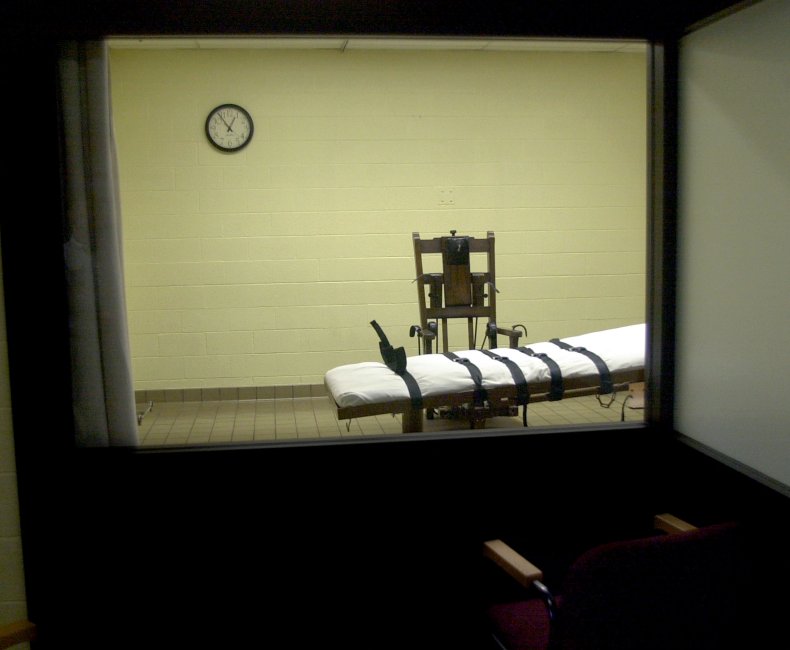Alabama Has Nearly Finished 'Build' for Nitrogen Gas Executions
Alabama has nearly finished construction of a "physical build" to use nitrogen hypoxia gas for executions.
A federal judge had ordered the Alabama Department of Corrections (ADOC) to provide information about the nitrogen hypoxia protocol in a lawsuit filed by a death row inmate seeking to have a spiritual adviser present at his execution, The Montgomery Advertiser reported.
The method is authorized under Alabama law, but has never put it into practice.
The ADOC is "is nearing completion of the initial physical build for the nitrogen hypoxia system and its safety measures," Alabama Attorney General Steve Marshall said in a court filing on Tuesday, the newspaper reported.
"Once the build is completed, a safety expert will make a site visit to evaluate the system and look for any points of concern that need to be addressed."
The filling did not explain the execution procedure, and it's not clear whether the state intends to use a gas chamber or a mask to administer the gas.
The "nitrogen hypoxia execution protocol is still under development, and the physical building modifications to the execution chamber are still in process," the ADOC said in a statement.

"Due to the fact those two items are not yet in a finalized state and potential security concerns exist, that is all we are able to share at this time." The department has been contacted for further comment.
Alabama law requires executions to be carried out via lethal injection unless an inmate chooses the electric chair. But botched executions, legal challenges and difficulty procuring lethal injection drugs in recent years have led some states to look for other ways to carry out the death penalty, such as firing squads and poison gas.
Alabama, along with Oklahoma and Mississippi, passed legislation authorizing the use of nitrogen hypoxia in 2018, with proponents arguing that it offered a more humane way of putting inmates to death.
But Robert Dunham, the executive director of the Death Penalty Information Center, has likened the proposed use of the gas to human experimentation since no state has used it to carry out an execution, or even developed a protocol for its use.
"We just have no idea whether it's going to work the way its proponents say it will," Dunham told the Advertiser. "If it does, then there may be a viable alternative to lethal injection. If it doesn't, it may be just another method that was advertised as being humane that turns out not to be. It's completely unethical to experimentally kill someone."
Alabama last executed an inmate, Nathaniel Woods, in March last year. The state has 169 people on death row.

